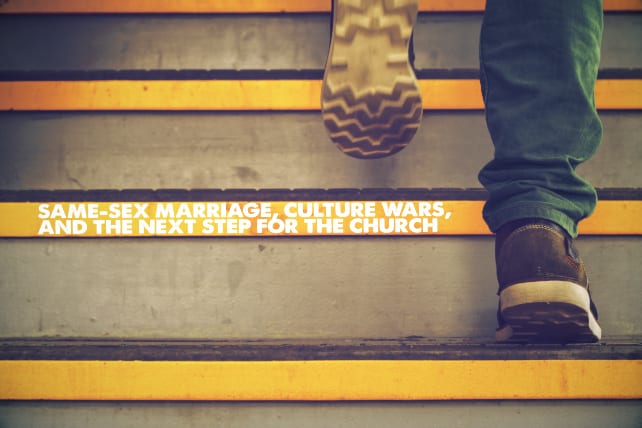As has been observed by many, recent events were nothing less than a cultural earthquake. For the first time in history, a sitting U.S. president endorsed same-sex marriage.
But the larger issue may have been the aftershock. Namely, the debate among Christians as to whether the issue even justifies engagement.
Many discuss the 40/40 divide (my terminology) on the matter. Those under 40 tend to support same-sex marriage, and not only believe it is pointless to engage but harmful to Christian outreach. Those over 40 believe it is a decisive issue and that failure to speak out and resist comes at great cultural peril.
Let’s dig deeper into the under-40 crowd. What is driving the divide from their elders?
I would argue that it is two-fold: First, they were the generation raised on Will & Grace, followed by Ellen. For them, homosexuality was normalized by the mainstream media. Further, the cultural acceptance of such matters has increased the number of friends and family they know, or know of, that are openly gay. This is a powerful combination.
But second, they encountered the fall-out of the Moral Majority and tend to automatically associate any and all cultural stances of a moral nature with its spirit.
Let’s camp out on the second.
The idea that captivated many Christians in the ’80s was the idea that ours was once a Christian nation, and we should actively work to return our governing bodies and laws back to their original intent. Even among those who did not espouse a sense of “returning,” there was often a deep sense of fulfilling a Christian destiny.
To be fair, the idea of “chosenness” and “special blessing” from God has been a constant theme throughout the history of the United States, beginning with the Puritans and their desire that, in the words of John Winthrop in 1630, they should be “as a Citty [sic] upon a Hill.” As historian Conrad Cherry writes, “Throughout their history, Americans have been possessed by an acute sense of divine election. They have fancied themselves a New Israel, a people chosen for the awesome responsibility of serving as a light to the nations….It has long been…the essence of America’s motivating mythology.”
That vision of a Christian America was again popularized in the late 1970s by evangelical authors Peter Marshall and David Manuel in The Light and the Glory. Marshall and Manuel held that America was founded as a Christian nation and flourished under the benevolent hand of divine providence, arguing further that America’s blessings will remain only as long as America is faithful to God as a nation. In 1989, a team of evangelical historians (Mark Noll, Nathan Hatch and George Marsden) attempted to lay this somewhat dubious thesis to rest, but it continues as a popular framework for viewing American history among American evangelicals.












